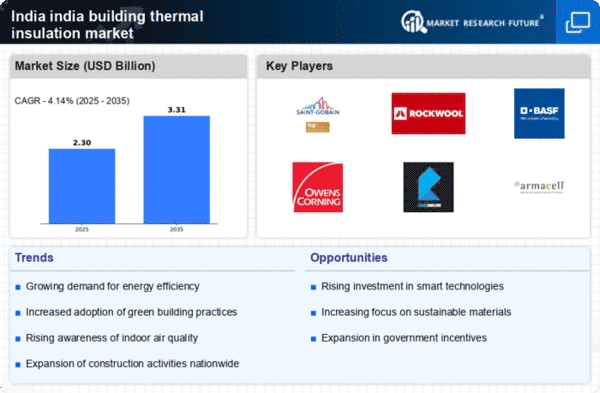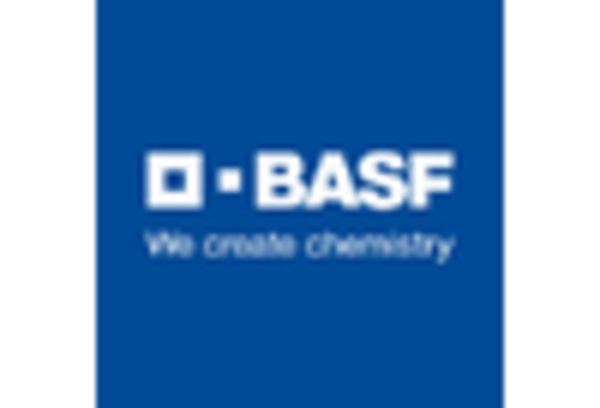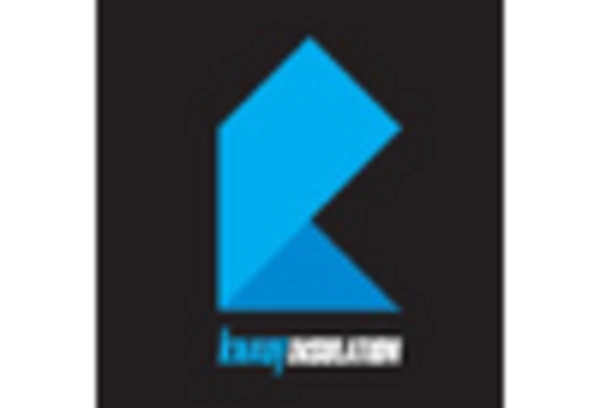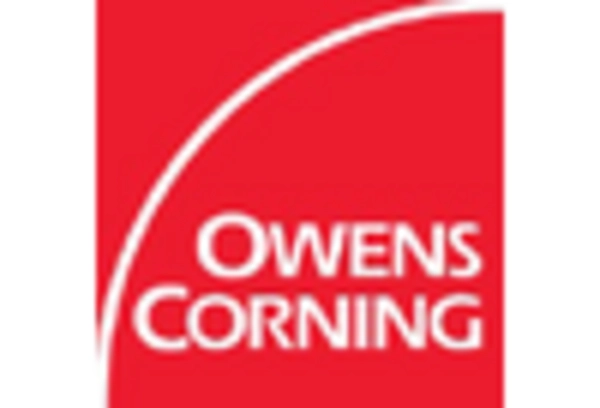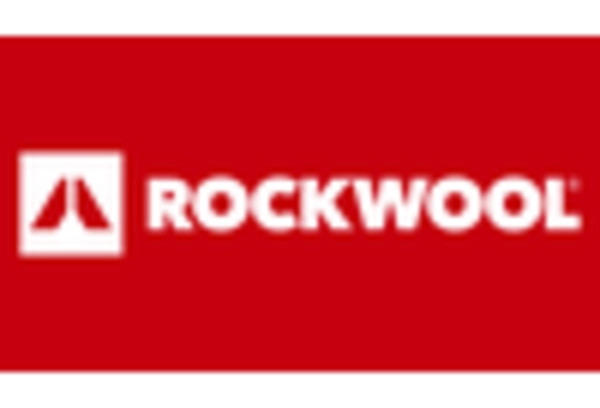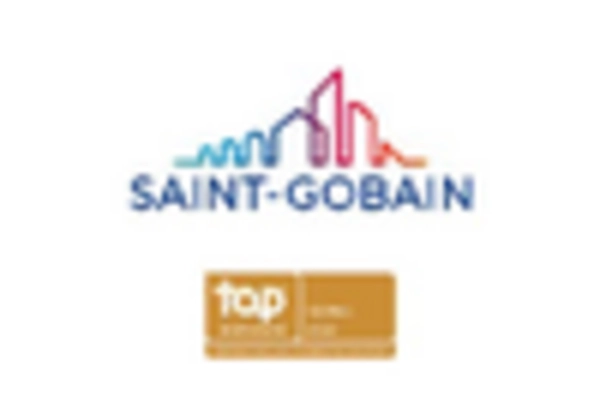Growing Demand for Energy Efficiency
The India Building Thermal Insulation Market is experiencing a notable surge in demand for energy-efficient solutions. As energy costs continue to rise, both residential and commercial sectors are increasingly seeking insulation materials that can significantly reduce energy consumption. According to recent data, buildings account for nearly 40 percent of total energy use in India, highlighting the critical need for effective thermal insulation. This growing awareness among consumers and builders about the benefits of energy efficiency is driving the market forward. Furthermore, government initiatives aimed at promoting energy conservation are likely to bolster this trend, as they encourage the adoption of advanced insulation technologies. Consequently, the demand for high-performance thermal insulation materials is expected to grow, positioning the India Building Thermal Insulation Market for substantial expansion in the coming years.
Government Regulations and Incentives
The Indian government has implemented various regulations and incentives aimed at promoting energy efficiency in buildings, which is positively impacting the India Building Thermal Insulation Market. Policies such as the Energy Conservation Building Code (ECBC) encourage the use of thermal insulation in new constructions. Additionally, financial incentives for energy-efficient building materials are being offered, which further stimulates market growth. These regulations not only aim to reduce energy consumption but also enhance the overall quality of buildings. As compliance with these standards becomes mandatory, the demand for high-quality thermal insulation products is expected to rise. This regulatory framework is likely to create a conducive environment for the India Building Thermal Insulation Market, fostering innovation and investment in advanced insulation technologies.
Rising Awareness of Environmental Impact
There is a growing consciousness regarding the environmental impact of construction practices in India, which is influencing the India Building Thermal Insulation Market. As climate change becomes an increasingly pressing issue, builders and consumers are seeking materials that minimize ecological footprints. The use of thermal insulation not only improves energy efficiency but also contributes to reducing greenhouse gas emissions associated with heating and cooling. Recent studies indicate that buildings with proper insulation can lower energy consumption by up to 30 percent. This awareness is prompting stakeholders to invest in sustainable insulation solutions, thereby driving market growth. The India Building Thermal Insulation Market is likely to benefit from this shift towards environmentally responsible construction practices, as more projects incorporate insulation as a standard feature.
Urbanization and Infrastructure Development
Urbanization in India is accelerating at an unprecedented rate, which is significantly impacting the India Building Thermal Insulation Market. With the urban population projected to reach 600 million by 2031, there is an urgent need for sustainable building practices. This rapid urban growth necessitates the construction of energy-efficient buildings that can withstand the increasing temperatures and climate variability. The government has initiated several infrastructure projects, including smart cities and housing for all, which emphasize the importance of thermal insulation in building design. As a result, the demand for insulation materials that enhance energy efficiency and comfort in urban settings is likely to rise. This trend not only supports the growth of the India Building Thermal Insulation Market but also aligns with national goals for sustainable development.
Technological Innovations in Insulation Materials
Technological advancements in insulation materials are playing a pivotal role in shaping the India Building Thermal Insulation Market. Innovations such as aerogel, vacuum insulation panels, and phase change materials are emerging as viable options for enhancing thermal performance. These advanced materials offer superior insulation properties, which can lead to significant energy savings in buildings. The market is witnessing a shift towards lightweight and high-performance insulation solutions that cater to the evolving needs of modern architecture. Furthermore, research and development initiatives are likely to continue driving innovation in this sector, as manufacturers strive to meet the growing demand for efficient and sustainable insulation products. As a result, the India Building Thermal Insulation Market is poised for growth, fueled by these technological advancements.


